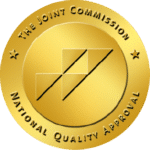For many decades, depression treatment consisted of either talk therapy, medications, or a combination of both. But emerging therapies that are highly effective and extremely safe are becoming much more prevalent as patients seek out therapies that do not use long-term medications. Here are several treatment options to consider:
TMS – A Drug Free Depression Solution
TMS ( Transcranial Magnetic Stimulation) is an FDA approved, non-invasive, form of depression treatment that is comfortable, natural and in most cases lacking in side effects. TMS is highly effective for depression cases that have not responded to conventional depression medications (SSRIs), although clinical experience has shown it can be beneficial for a wide range of mental health disorders.
TMS is administered by imparting gentle magnetic impulses to regions of the brain involved in mood regulation. While receiving TMS treatment, patients are comfortable, relaxed and awake. The pulses are so gentle that patients report they feel like taps on the scalp.
Ketamine – A Breakthrough in Psychadelic Medicine for Mental Health
For some people, the drug Ketamine provides almost unbelievably fast relief from depression. Long approved by the FDA for anaesthetic purposes, nasal spray-form Ketamine has recently come to the fore as an extremely safe alternative way to treat depression.
Ketamine nasal spray has been shown to reduce the effects of depression in as little as two weeks. Our administration of Ketamine treatment is FDA approved and doctor-supervised.
Another major benefit of Ketamine is that it can be used in conjunction with other types of therapy, particularly psychotherapy. Ketamine increases neuroplasticity—the brain’s ability to learn– which enhances the benefits of talk therapy.
Neurofeedback – An Innovative Brain Wave Measurement Tool
The Neurofeedback process mimics other types of biofeedback such as heart rate and temperature monitoring but uses brain wave measurement to determine ways to improve people’s moods and feelings. By comparing brain waves in an agitated state versus a normal baseline, a therapist can create a strategy to ensure optimal performance. Neurofeedback is used with gentle sensors that sit on the scalp.
If you or a loved one is struggling with depression or another difficult mental health challenge and think that depression treatment that does not use long-term medication might be right for you, please contact us to discuss your options.










